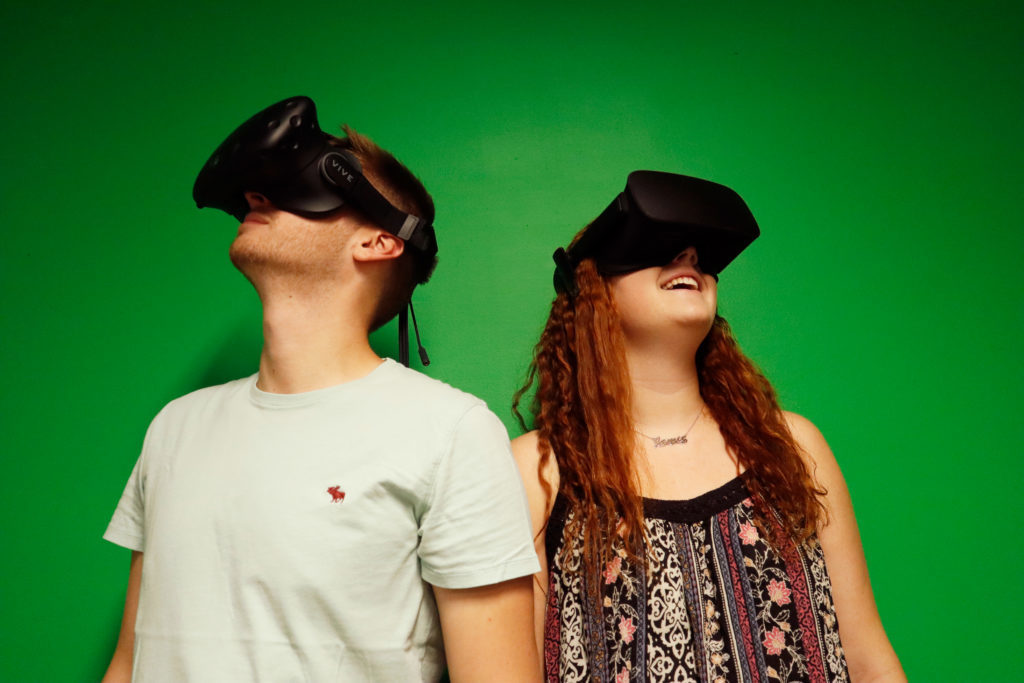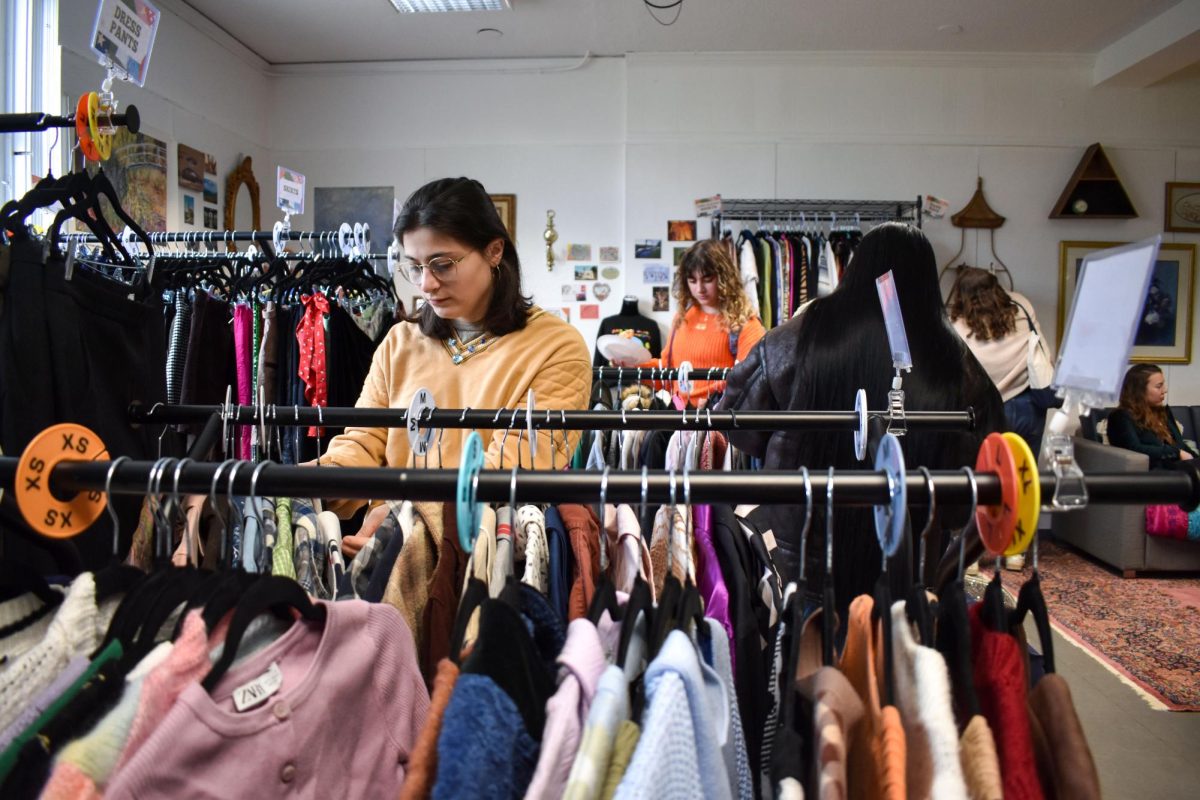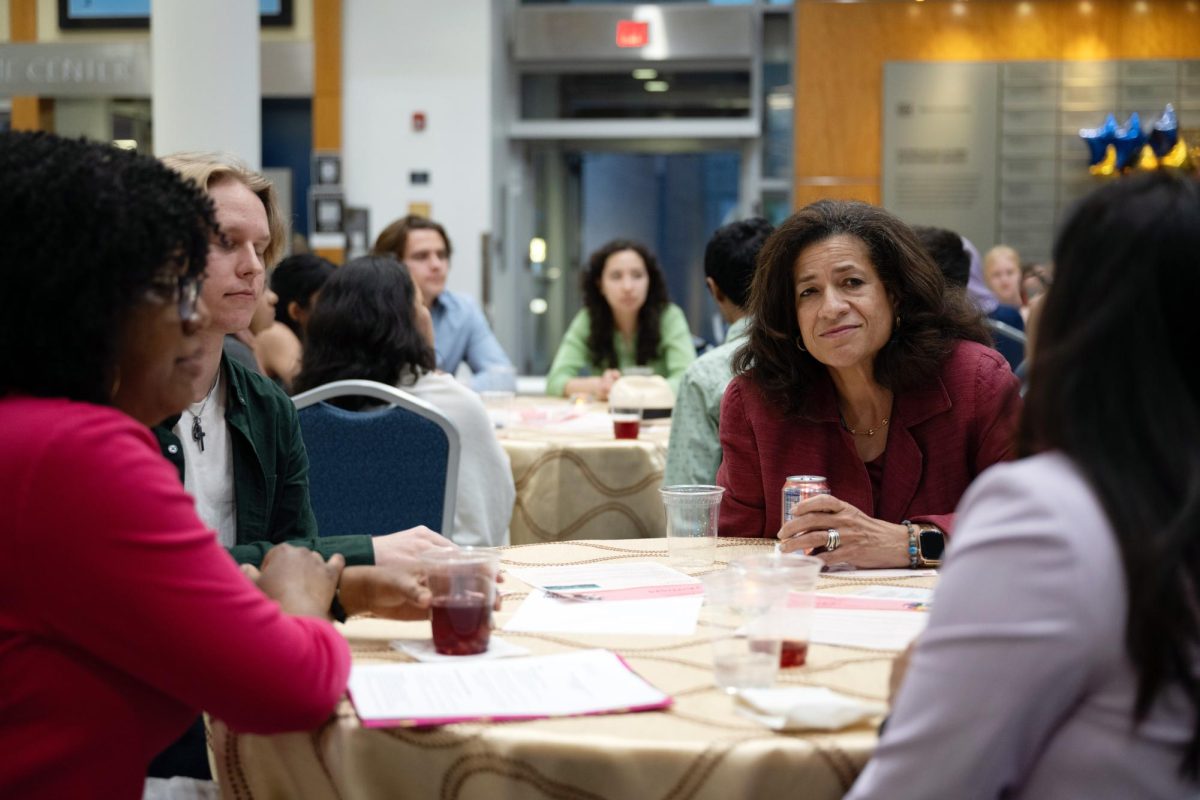A group of students is launching an organization to teach students how to solve social issues using virtual reality.
Looking Glass, which registered as an organization in March but held its first meeting earlier this month, will use virtual reality technology to simulate real-life experiences to find solutions to social issues like homelessness, members said. Kaitlin Santiago, the group’s president, said the organization aims to bolster students’ virtual reality skills, which she said is lacking on campus for those interested in the technology.
Virtual reality is a computer technology that places its users in an environment that simulates real-world experiences, according to development company Cygnis Media.
“I’m really interested in having a VR startup, so I wanted a place where I could go to gain skills from each area to assist me in my own career,” Santiago said. “I want to be able to give that to other students and tell them it doesn’t matter what you want to learn – just come, learn and build yourself here.”
Santiago, a senior, said she took a VR internship three years ago where she learned how to program and design in virtual reality and how to market virtual reality to a nontechnical audience. She said she formed Looking Glass at GW because she couldn’t find a student organization on campus that focused on VR.
“Other students in the program either started their own campus virtual reality organization or they were a part of the one on their campus,” she said. “It was the communal spirit for emerging technology that made me want to foster a similar community on campus here at GW.”
Santiago said the group plans to host the University’s first virtual reality “hackathon” this spring, during which D.C. students will work together to use VR technology to mitigate a social issue, like female reproductive rights or homelessness.
She said Looking Glass plans to work with George Hacks – a 24-hour student-led innovation competition – to learn about hackathons the group has held in the past and how the organization recruited participants.
She said the group will poster on D.C. college campuses and email or speak with similar groups to Looking Glass on other campuses to recruit hackathon participants.
“The purpose of this hackathon is to bring together creative ideas on how to use the emerging technology of virtual reality in bringing awareness or contributing to the solution of a social issue,” she said. “There is no guideline or limit to what people may come up with as solutions.”
Sophomore Jamie Horowitz, the group’s treasurer, said the organization held a few informal meetings last semester to gauge interest for the group. Starting this fall, she said Looking Glass members will meet once a week to practice using Unity – a development platform for virtual reality.
“It’s very much what people want to do,” she said. “If they come to us with ideas, we’ll run with it,” she said.
Horowitz said the group recruited new members at the student organization fair, and about 20 students attended Looking Glass’ first meeting of the year earlier this month.
“Hopefully by the end of the semester, everyone will have enough of a foundation to take it in their own directions,” she said. “Next semester, we want to do more of the design business aspect of it, which is implementing a project that you can make.”
Junior Alex Broaddus, the organization’s vice president, said Looking Glass differs from other student organizations because the group encourages members to come in with some skillsets and experience in subjects like design or programming.
Broaddus said the group encourages students who might not have previously used VR technology to get involved because group leaders will teach the basic elements of VR.
“GW has many student orgs geared toward all majors, but there are only a few technical orgs on campus and most of them are geared toward students in STEM majors,” he said. “Creating and marketing VR experiences is something that all majors can contribute to as there’s technical, artistic and business elements to it.”







